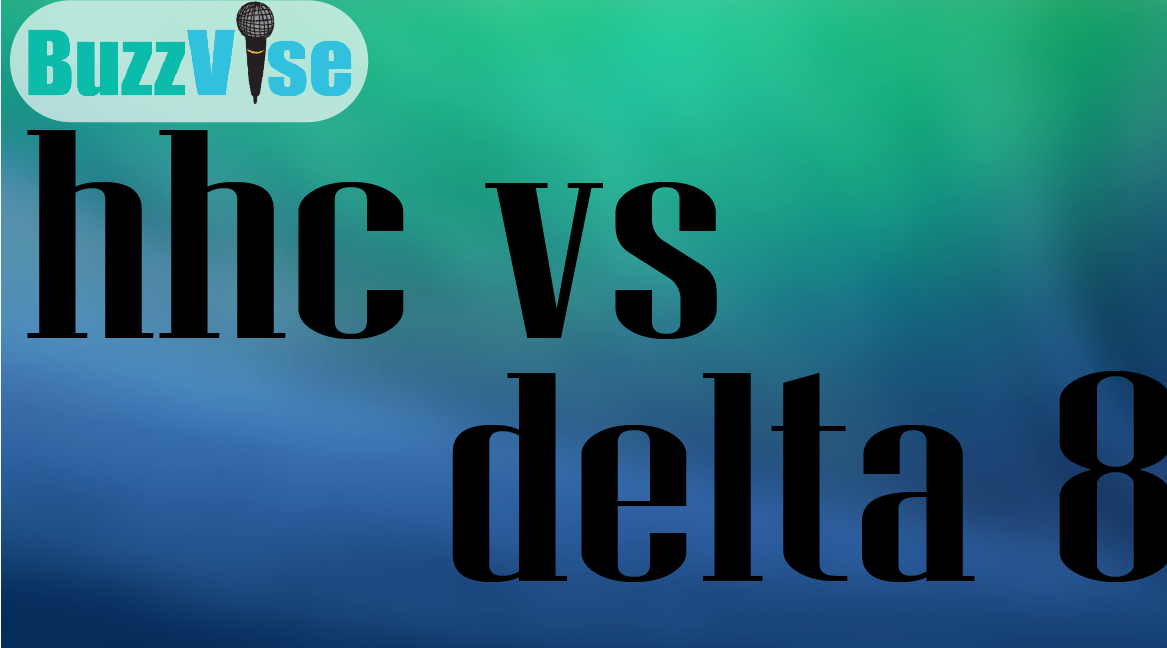If you’re looking to explore cannabinoids beyond the classic cannabis experience, Delta 8 THC and HHC (Hexahydrocannabinol) have become two of the most talked-about options. Both derived from hemp and offering psychoactive effects similar to the well-known Delta 9 THC, they present unique experiences for users seeking something different. But how do these two compare? Which one might be right for you? In this article, we’ll break down their chemical differences, effects, legality, safety, and much more—so you can make an informed choice.
Delta 8 THC is often praised for delivering a smooth, mellow high that many find less intense than traditional cannabis. Meanwhile, HHC is gaining popularity for its reportedly stronger and longer-lasting effects while maintaining clarity and focus. Despite some similarities, these cannabinoids are distinct in ways that affect how they work in the body and the experiences they provide.
What Is Delta 8?
Delta 8 THC is a naturally occurring cannabinoid found in the cannabis plant, albeit in very small amounts. Chemically, it’s very similar to Delta 9 THC—the primary psychoactive compound in marijuana—but with a subtle difference. The key variation lies in the position of a double bond on its carbon chain: Delta 8 has this bond on the eighth carbon atom, whereas Delta 9’s double bond is on the ninth. This small change affects both the potency and the stability of the molecule.
This difference means Delta 8 binds to the CB1 receptors in the brain with a slightly different affinity than Delta 9, resulting in a less intense psychoactive effect. Many users report a clearer, calmer high with reduced anxiety and paranoia, which makes Delta 8 appealing to those who want therapeutic benefits without overwhelming intoxication. Additionally, Delta 8 tends to be more chemically stable, giving it a longer shelf life and better resistance to oxidation than Delta 9.
What Is HHC?
Hexahydrocannabinol (HHC) is less well-known but is rapidly becoming a popular cannabinoid. Unlike Delta 8 and Delta 9, HHC is not naturally abundant in cannabis. Instead, it’s typically created through a chemical process called hydrogenation, where hydrogen atoms are added to Delta 9 THC, changing its molecular structure.
This process fully saturates the carbon rings, eliminating the double bonds present in Delta 8 and Delta 9 THC. This saturation gives HHC increased stability and resistance to degradation, meaning products containing HHC may last longer without losing potency.
Users describe HHC’s effects as somewhere between Delta 8 and Delta 9 THC—stronger and more euphoric than Delta 8, but generally less anxiety-provoking and with a more clear-headed feel compared to Delta 9. Its unique molecular shape also means HHC binds differently to cannabinoid receptors, which might explain its distinct psychoactive profile.
How Do Their Effects Compare?
When it comes to effects, Delta 8 and HHC both produce psychoactive experiences, but they differ in intensity and quality.
Delta 8 THC is known for a gentle, relaxing high. It provides users with a sense of calm and mild euphoria without the intense headspace or anxiety sometimes associated with Delta 9 THC. Many find it useful for stress relief, pain management, and appetite stimulation with a clear-headed and functional buzz.
On the other hand, HHC is typically reported as more potent. Users often experience a stronger euphoria and longer-lasting effects that can be quite uplifting yet less likely to cause paranoia. HHC’s effects are described as smooth and balanced, providing both mental clarity and physical relaxation.
The onset time and duration vary by consumption method, but generally, vaping either cannabinoid results in quicker effects than edibles or tinctures.
Legal Status: What You Need to Know
Legality is a major factor in choosing between Delta 8 and HHC. Both cannabinoids are primarily derived from hemp, making them subject to the 2018 Farm Bill in the United States, which legalized hemp and its derivatives with less than 0.3% Delta 9 THC.
Delta 8 has experienced a surge in popularity because of this legal loophole, but states vary widely in their acceptance. Some states have explicitly banned Delta 8, citing concerns over safety and unregulated markets. Others allow it with minimal restrictions.
HHC’s legal status is more ambiguous. Because it is semi-synthetic and not naturally occurring in large amounts, it falls into a gray area that many states have yet to address. This means availability and legality can differ significantly depending on where you live. Consumers should always check local laws before purchasing or consuming these products.
Safety and Side Effects
Both Delta 8 and HHC are considered relatively safe for most users when taken responsibly, but side effects can occur. Common reactions include dry mouth, red eyes, dizziness, and slight impairment of coordination or judgment. Because both cannabinoids bind to CB1 receptors, they can cause mild intoxication.
Delta 8 is often praised for causing less anxiety and paranoia compared to Delta 9 THC, making it a preferred choice for those sensitive to stronger cannabis effects. HHC also tends to cause fewer negative effects but can vary by individual, especially given its greater potency.
Neither cannabinoid has been studied extensively in clinical settings, so long-term safety data are limited. It’s important to start with low doses and consult a healthcare professional if you have underlying health conditions or are taking medications.
How to Choose: Delta 8 or HHC?
Your choice between Delta 8 and HHC depends on your tolerance, experience, and desired effects.
- If you want a mild, calming high with minimal psychoactivity, Delta 8 is likely the better option.
- If you’re seeking a stronger, longer-lasting high with more euphoric and uplifting effects, HHC may suit you better.
- Legal considerations should also guide your choice—check your state’s regulations before purchasing.
- Consider trying both at low doses to see how your body reacts, and always purchase from reputable brands with third-party testing to ensure product safety and potency.
Common Consumption Methods
Both Delta 8 and HHC come in a variety of product forms, making it easy to find a method that fits your lifestyle:
- Vaping: Provides fast onset and high bioavailability. Great for users who want immediate effects.
- Edibles: Offer longer-lasting effects but slower onset. Ideal for sustained relief or discreet use.
- Tinctures: Absorbed sublingually for relatively quick and controllable dosing.
- Capsules: Provide precise dosing and are easy to incorporate into a daily routine.
- Topicals: Non-psychoactive and used for localized relief, though less common for these cannabinoids.
Where to Buy Quality Products
Due to the rise in popularity, the market is flooded with Delta 8 and HHC products. Prioritize purchasing from brands that:
- Provide third-party lab testing to verify cannabinoid content and purity.
- Use high-quality, hemp-derived ingredients.
- Have positive customer reviews and transparent ingredient lists.
Reputable brands often offer gummies, vape cartridges, tinctures, and flower infused with either Delta 8 or HHC, catering to various preferences and budgets.
Frequently Asked Questions
Will Delta 8 or HHC show up on a drug test?
Yes. Both can metabolize into compounds detected as THC in standard drug tests, so abstain if you need to pass testing.
Can you take Delta 8 and HHC together?
It’s possible but not widely studied. Combining cannabinoids can amplify effects, so proceed cautiously.
Are there medical benefits?
Both show potential for relief from pain, anxiety, and nausea, but more research is needed to confirm therapeutic uses.
Conclusion
Delta 8 THC and HHC offer compelling alternatives to traditional cannabis, each with unique profiles that appeal to different users. Delta 8 is favored for a milder, more relaxed high, while HHC provides a stronger, more euphoric experience with increased stability.
When choosing between them, consider your tolerance, legal environment, and the kind of effects you seek. Always source products from trusted brands and start low to find your ideal dose. Both cannabinoids open new doors in the evolving cannabis market, promising exciting experiences for both newcomers and seasoned users alike.





Leave a Reply